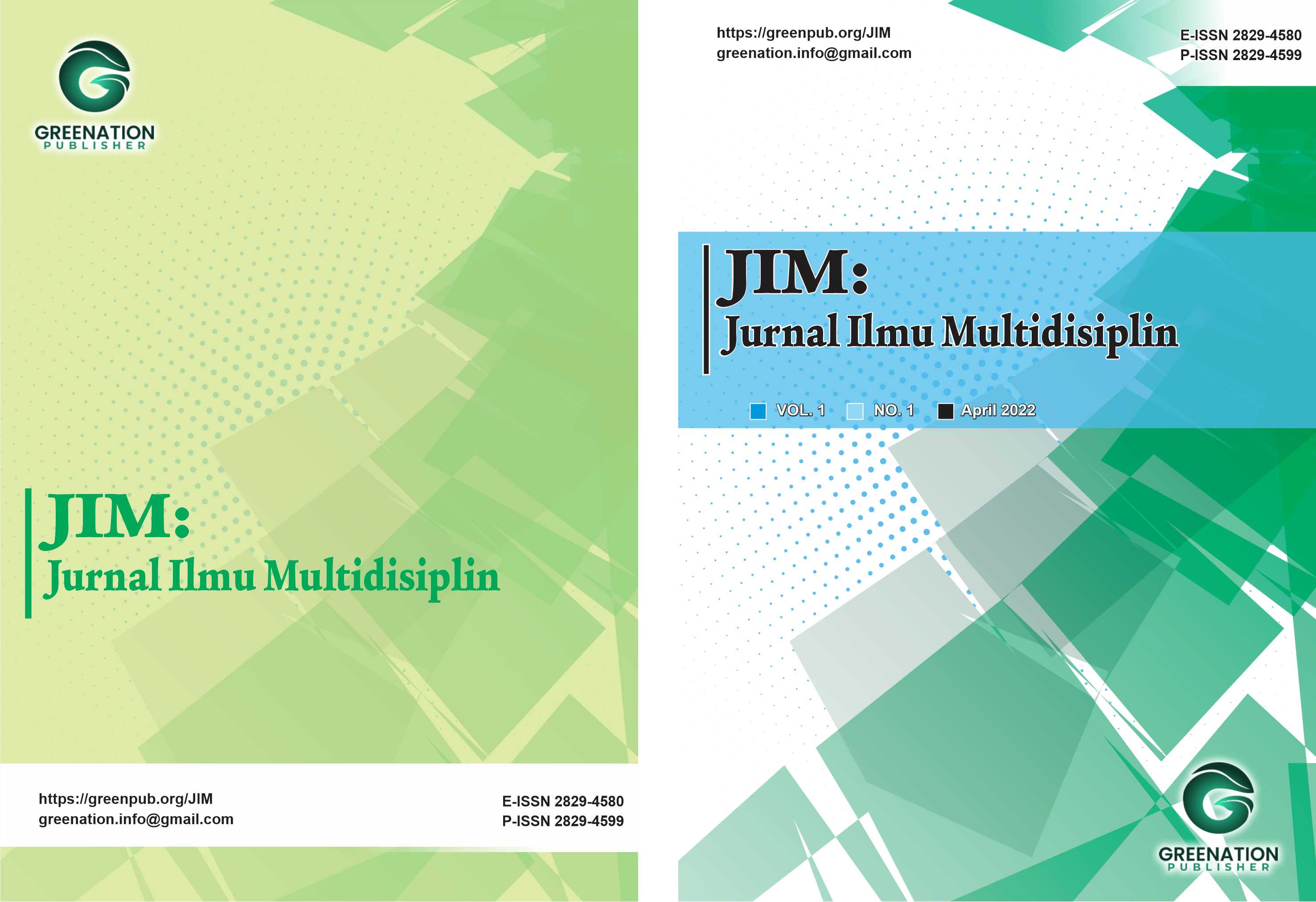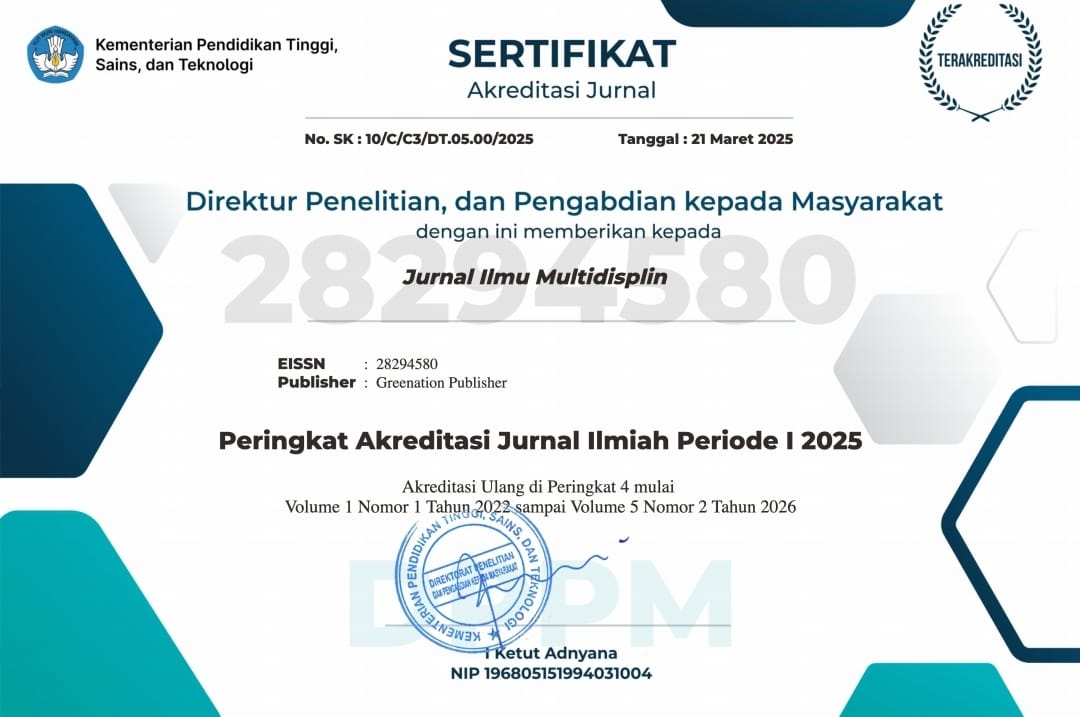The State of Digital Transformation Among Indonesian SMEs: Insights from a Systematic Review
DOI:
https://doi.org/10.38035/jim.v4i3.1227Keywords:
Digital Transformation, SMEs, Indonesia, Systematic Literature Review, PRISMAAbstract
This study aims to systematically review the existing body of literature on digital transformation practices among small and medium enterprises (SMEs) in Indonesia. Using the PRISMA (Preferred Reporting Items for Systematic Reviews and Meta-Analyses) methodology, we identified, screened, and analysed peer-reviewed journal articles published between 2020 and 2024 from the Scopus database. The review explores the key drivers, enablers, barriers, and outcomes of digital transformation in the context of Indonesian SMEs across various sectors. Findings reveal that government support, digital literacy, and access to affordable digital infrastructure play a significant role in accelerating digital adoption. Conversely, limited financial resources, resistance to change, and low technological readiness remain critical challenges. The study also highlights emerging trends such as the use of cloud computing, e-commerce platforms, and Industry 4.0 technologies as transformative tools for improving competitiveness and operational efficiency. This review contributes to the academic understanding of digitalization in developing economies and offers practical insights for policymakers, business leaders, and researchers aiming to support Indonesia's digital economy agenda. Future research directions are proposed to address gaps in longitudinal studies, sector-specific analysis, and the role of digital ecosystems in SME transformation.
References
Aagaard, A., Sørensen, F., & Westarp, F. V. (2022). Digital platform innovation for SMEs: A systematic literature review. Technological Forecasting and Social Change, 178, 121601.
Anatan, L., & N. (2023). Micro, small, and medium enterprises’ readiness for digital transformation in Indonesia. Economies, 11(6), 156.
Aprilia, N., Subroto, W. T., & Sakti, N. C. (2024). A Bibliometric Study of Research Patterns in National Income and Economic Growth, 2015–2024. Formosa Journal of Sustainable Research, 3(10), 2181–2194.
Arfi, W. B., Hikkerova, L., & Sahut, J. M. (2021). Digital entrepreneurship: How does entrepreneurial experience matter? Technological Forecasting and Social Change, 170, 120939.
Bening, S. A., Dachyar, M., Pratama, N. R., Park, J., & Chang, Y. (2023). E-Commerce technologies adoption strategy selection in Indonesian SMEs using the decision-makers, technological, organizational and environmental (DTOE) framework. Sustainability, 15(12), 9361.
Del Giudice, M., Scuotto, V., Garcia-Perez, A., & Petruzzelli, A. M. (2021). Shifting tides: The digital transformation of SMEs. Technovation, 102361.
Destrian, O., & S. (2024). The influence of leaders’ digital literacy on SMEs’ digital transformation in Indonesia. International Journal of Intelligent Enterprise, 11(4), 396–419.
Fitriani, A., & Yuliani, M. (2023). Exploring the role of digital literacy in digital transformation of Indonesian SMEs. Asian Journal of Business and Accounting, 16(1), 24–39.
Ginting, R., Sihotang, T. M., & Hutagalung, A. (2023). Empowering SMEs through digital adoption: Indonesian perspective. Journal of Business Innovation, 12(3), 88–101.
Hadiyati, E., Mulyono, S., & Gunadi, G. (2024). Digital Marketing As Determinant Variable For Improving The Business Performance. E-Repository Dosen Universitas Gajayana Malang.
Harini, Y., Santoso, B., & Nugroho, R. (2023). Determinants of SME performance: Evidence from Indonesia. Problems and Perspectives in Management, 21(1), 103–114.
Kraus, S., Schiavone, F., Pluzhnikova, A., & Invernizzi, A. C. (2022). Digital transformation in SMEs: A systematic review and research agenda. Journal of Small Business Management, 60(2), 242–278.
Kurniasari, S. D., Hasan, M. I., & Wijaya, P. A. (2023). Digital transformation readiness in Indonesian SMEs: A survey across sectors. Journal of Innovation and Business Strategy, 6(1), 45–58.
Laila, N., Ratnasari, R. T., Ismail, S., Mohd Hidzir, P. A., & Mahphoth, M. H. (2023). The intention of small and medium enterprises’ owners to participate in waqf: the case of Malaysia and Indonesia. International Journal of Islamic and Middle Eastern Finance and Management, 16(3), 429–447.
Mariano, S., Oliveira, M. D., & Almeida, J. (2023). Institutional support and digital entrepreneurship in developing economies. Journal of Entrepreneurship in Emerging Economies, 15(1), 123–144.
Maulana, A. (2025). Strategies and challenges of traditional to digital business transformation in MSMEs in Indonesia. ORGANIZE: Journal of Economics, Management and Finance, 4(1), 92–99.
Nasution, M. D. T. P., & Lubis, F. (2022). ICT adoption challenges among Indonesian SMEs. Jurnal Teknologi Dan Masyarakat, 4(1), 11–20.
Nugroho, Y., Fajar, A. N., & Indrasari, R. (2022). SMEs, digital inclusion and transformation: Indonesia’s emerging digital ecosystem. Asian Journal of Innovation and Policy, 11(2), 66–84.
Page, M. J., McKenzie, J. E., Bossuyt, P. M., Boutron, I., Hoffmann, T. C., Mulrow, C. D., ... & Moher, D. (2021). The PRISMA 2020 statement: An updated guideline for reporting systematic reviews. BMJ. https://doi.org/https://doi.org/10.1136/bmj.n71
Priyono, A., Moin, A., & Putri, V. N. A. O. (2020). Identifying digital transformation paths in the business model of SMEs during the COVID-19 pandemic. Journal of Open Innovation: Technology, Market, and Complexity, 6(4), 104.
Putritamara, J. A., Hartono, B., Toiba, H., Utami, H. N., Rahman, M. S., & Masyithoh, D. (2023). Do dynamic capabilities and digital transformation improve business resilience during the COVID-19 pandemic? Insights from beekeeping MSMEs in Indonesia. Sustainability, 15(3), 1760.
Rachinger, M., Rauter, R., Müller, C., Vorraber, W., & Schirgi, E. (2019). Digitalization and its influence on business model innovation. Ournal of Manufacturing Technology Management, 30(8), 1143–1160.
Santoro, G., Ferraris, A., & Giacosa, E. (2020). How SMEs engage in open innovation: A systematic literature review. Journal of Knowledge Management, 24(5), 1010–1033.
Setianto, R. H., & Suharto, Y. (2022). Digital transformation barriers in Indonesian SMEs. Journal of Innovation and Development, 11(2), 79–95.
Siregar, M. A., & Hartono, B. (2022). Strategic digital planning in SMEs: Empirical insights from West Java. Jurnal Riset Manajemen Dan Bisnis, 17(2), 33–47.
Sousa, M. J., & Rocha, Á. (2021). Digital learning in SMEs: Insights for smart talent development. Education and Information Technologies, 26(4), 4193–4211.
Suryana, Y., Iskandar, D., & Purnama, D. (2022). Post-pandemic business transformation among SMEs: Evidence from Indonesia. Small Enterprise Research, 29(1), 89–105.
Susanti, Y., Nurcahyo, R., & Wibowo, A. (2021). Digital transformation during COVID-19: The Indonesian SME experience. Asian Journal of Business and Technology, 11(3), 22–34.
Tama, I. P., Nugroho, W. S., Mahmudy, W. F., & Purnami, P. (2022). The Evaluation of Technology Startup Role on Indonesian SMEs Industry 4.0 Adoption Using CLD-ABM Integrated Model. Sustainability, 14(14), 8462.
Verhoef, P. C., Broekhuizen, T., Bart, Y., Bhattacharya, A., Dong, J. Q., Fabian, N., & Haenlein, M. (2021). Digital transformation: A multidisciplinary reflection and research agenda. Journal of Business Research, 122, 889–901.
Wulandari, A., Marcelino, D., Suryawardani, B., & Adithya, D. (2023). Digital capability and literacy for MSME transformation: Perspectives of digital and business performance. Asia Pacific Management and Business Application.
Zahara, Z., Muslimin, M., & Buntuang, P. C. D. (2022). The impact of marketing innovations and business plans on business sustainability during the COVID-19 pandemic. Innovative Marketing, 18(3), 121–135. https://doi.org/10.21511/im.18(3).2022.11
Downloads
Published
How to Cite
Issue
Section
License
Copyright (c) 2025 Indra Muis

This work is licensed under a Creative Commons Attribution 4.0 International License.
You are free to:
- Share— copy and redistribute the material in any medium or format
- Adapt— remix, transform, and build upon the material for any purpose, even commercially.
The licensor cannot revoke these freedoms as long as you follow the license terms.
Under the following terms:
- Attribution— You must give appropriate credit, provide a link to the license, and indicate if changes were made. You may do so in any reasonable manner, but not in any way that suggests the licensor endorses you or your use.
- No additional restrictions— You may not apply legal terms or technological measures that legally restrict others from doing anything the license permits.
Notices:
- You do not have to comply with the license for elements of the material in the public domain or where your use is permitted by an applicable exception or limitation.
- No warranties are given. The license may not give you all of the permissions necessary for your intended use. For example, other rights such as publicity, privacy, or moral rightsmay limit how you use the material.



























